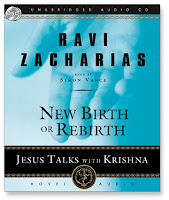Life is full and fast. We keep saying each year has been a roller coaster ride. This one has been no different so far and promises to be just as busy. Work schedules, Alma's studies apart from work, parents and siblings visiting, worries about relatives' health, Emma's growing-up and above all questions as to where God is taking us in our relationship(s) with Him.
Michael Card recently released an album of hymns. He chose the more unusual ones and one caught my attention, putting my life into some perspective, especially the part about "a cup of water given for thee", reminding me again that heavy load is Jesus' strange cure for weary hearts (as Ravi says). Card changed its tune, making it just a bit contemporary. But it remains powerful and the lyrics are daunting and haunting. I have been thinking through these lines, written by Frank North, evoking the impersonal bustle of his native New York City, circa early Twentieth Century. Here are the words:

